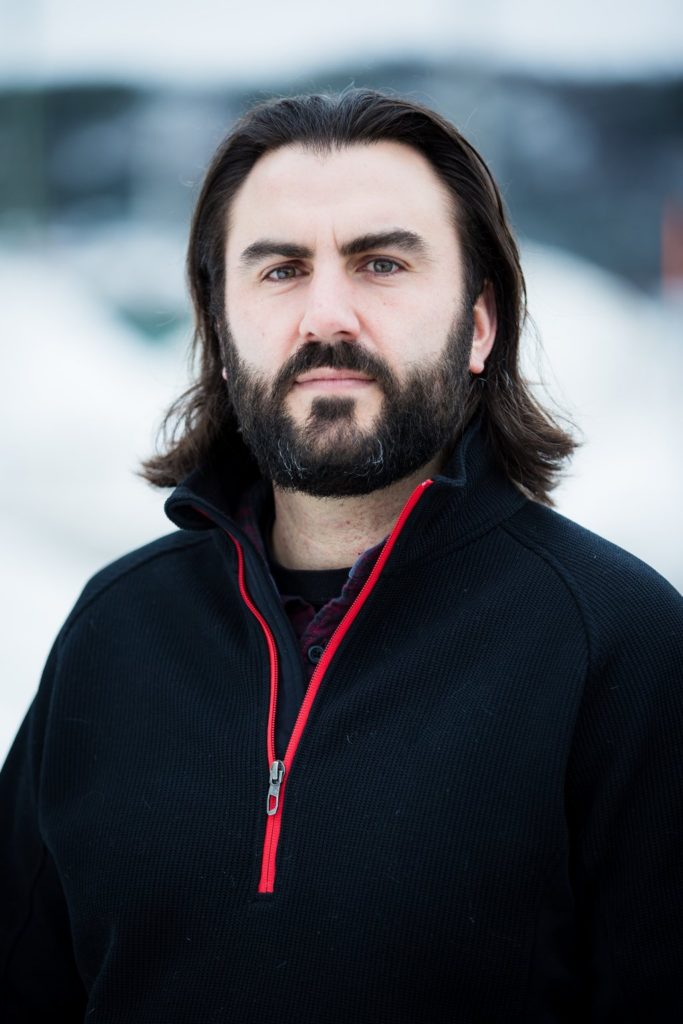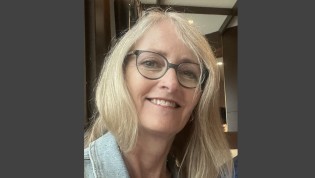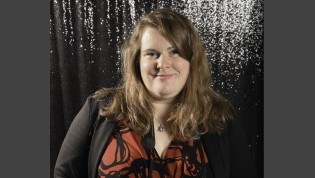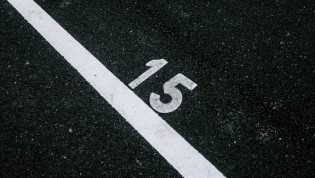by Steve Cornwell
[caption id="attachment_13404" align="alignright" width="285"] Journalist Justin Brake
Journalist Justin Brake
Photo by Tom Cochrane[/caption]
When Justin Brake followed Indigenous land protectors past a fence and into the Muskrat Falls hydro-electric dam site last October, he thought he could rely on the freedom of the press provision in the Charter of Rights and Freedoms.
Brake was reporting on demonstrators who went several kilometres into the site and occupied space in a Muskrat Falls workers' camp. The land protectors were protesting the potential impacts the construction of the dam would have on their fishing and food supplies.
Now, just over six months removed from covering the story for The Independent, an online news site in Newfoundland and Labrador, Brake is facing three charges – one civil and two criminal – the latter of which could result in up to 10 years in jail.
“I wasn't really tuned into press freedom issues,” says Brake. “It was just something I took for granted because I knew it was constitutionally protected; that's basically why I made the decision I did that day because I thought I would have protection because the constitution is the highest law in Canada.”
Facing similar charges as the land protectors he was covering, Brake warns that Canadian journalists “shouldn't feel that they have that protection guaranteed, it's not guaranteed.”
Tom Henheffer, executive director of Canadian Journalists for Free Expression says that independent journalists and reporters from smaller media outlets are “far more vulnerable and far more often targeted” for legal action than those working for larger media outlets. Brake believes his lawyer is representing him well, but he acknowledges that defending yourself in legal matters is likely easier with more resources.
“Certainly journalists who already have less institutional support would be perhaps more deterred from following these stories,” says Brake.
Henheffer says that Brake's charges, like those faced by Vice reporter Ben Makuch, who could face jail time for not giving communications he had with a suspected ISIS militant over to the RCMP, are part of a larger pattern of the government trying to purposefully chill journalism in Canada.
“We thought that when Justin Trudeau came to power and he was talking big things about press freedom, there would be a big difference and that the chill that we had under the previous government would go away,” Henheffer says. “But things have only gotten worse.”
In Reporters Without Borders' (RWB) latest World Press Freedom Index, Canada has fallen four places, now ranking 22nd in the world. According to RWB, the ranking is based on data of threats and acts of violence against journalists as well as expert opinion. Canada was ranked eighth in the index in 2015.
In its rationale for Canada's ranking, RWB cited litigation against Brake and Makuch as well as several instances of journalists being under police surveillance in Quebec.
Speaking at the Canadian Association of Journalists conference in Ottawa on April 28, heritage minister Mélanie Joly said that she was concerned about police surveillance of journalists and is engaged with public safety minister Ralph Goodale on the issue.
Brake was in court for a hearing on April 11 and is scheduled to return on May 30.
Geoff Budden, who is representing Brake, says that the Crown has indicated that they will pursue the charges as a summary rather than an indictable offence, which should lower the sentence if the court finds Brake guilty. Budden added that it's unlikely that Brake will face the top end of his sentence if convicted, as charges like those that Brake face rarely result in significant jail time.
“Even if I'm not convicted, journalists who might find themselves in a similar situation already could look to my case and say, 'well, I don't want to deal with that so I'm not going to go ahead with [a story],' " says Brake.
According to Henheffer, the best solution when journalists in Canada face challenges to freedom of the press is to show that they will not be intimidated.
“Canada is a uniquely cowardly country when it comes to journalists fighting to protect their rights,” he says. “We have a bizarre unwillingness to do so and that's a huge problem, so journalists need to stand up and fight because if they don't, no one else will.
Steve Cornwell is a journalist based in Toronto. You can follow him on Twitter at @steve_cornwell
Search
Recent Posts





